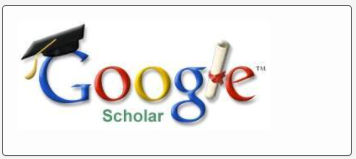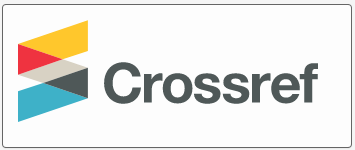New Educational Technologies and Tools in Future Teachers’ Preparing for Professional Activities in a Multicultural Society
DOI:
https://doi.org/10.52340/idw.2021.535Keywords:
intercultural competence, professional training, model, comparative method, digital toolsAbstract
Ethno-cultural diversity of the population of Ukraine actualizes the problem of preparing future teachers and educators for professional activities in a multicultural society. The legislative, normative, and conceptual framework of intercultural education in Ukraine is listed. The achievements of international organizations have been taken into account and creatively developed: UN, UNESCO, UNICEF, The Council of Europe. The author’s approach to the interpretation of the essence of intercultural competence is revealed, which provides the teacher with the ability to understand and respect the cultural diversity of modern Ukrainian society, understand its value as a resource for the development of personality and society, and use in practice the educational and socializing potential of cultural diversity. The structure of the intercultural competence is outlined, which combines personal-psychological, cognitive, procedural-activity components. The model of the formation of future teachers’ intercultural competence was developed and implemented at the H. S. Skovoroda Kharkiv National Pedagogical University. The model assumes the construction of the content of the process of forming intercultural competence on the basis of a comparative acquaintance of future teachers with the traditional culture of different peoples and its implementation in the educational process, pedagogical practices, extracurricular and research activities of students; the use of innovative forms, methods and techniques of work: interactive, training, game, project; purposeful impact on the emotional sphere of the student's personality (work with moral dilemmas and multimedia resources); creation of an educational environment for intercultural communication in a pedagogical university. The media resources used in the process of forming the intercultural competence of future teachers (films of the Docudays festival, cartoons of the “Lullabies of the Worldˮ project, clips of the video project “Made in Ukraineˮ, etc.), as well as digital tools (virtual interactive whiteboards Padlet, Google Jamboard, service for creating presentations and instant polls Mentimeter, an online tool for creating interactive Wordwall games).
Downloads
References
Бережна С. В. (2011) : Сучасний стан та перспективи порівняльного методу в гуманітарній освіті: компаративний аналіз // «Філософія і політологія в контексті сучасної культури», № 2. 35–43.
Бережна С. В. (2016) : Феномен мультикультуралізму в постмодерні // «Вісник Харківського національного педагогічного університету імені Г. С. Сковороди. Філософія», № 47(2). 40–46.
Бойчук Ю. Д., & Казачінер О. С. (2020) : Розвиток інклюзивної компетентності вчителів у системі післядипломної освіти засобами ІКТ // «Освіта дорослих: теорія, досвід, перспективи», №. 2. 66–75.
Бойчук Ю. Д., & Таймасов Ю. С. (2015) : Компетентнісна парадигма в сучасній вищій професійній освіті // «Новий Колегiум», № 1. 38–44.
Верховна Рада України. (1996) : Конституція України. URL: https://zakon.rada.gov.ua/laws/show/254к/96-вр#Text
Державний комітет статистики України. (2001a) : Національний склад населення // «Про кількість та склад населення України за підсумками Всеукраїнського перепису населення 2001 року». URL: http://2001.ukrcensus.gov.ua/results/general/nationality/
Державний комітет статистики України. (2001b) : Національний склад населення // «Про кількість та склад населення Харківської області за підсумками Всеукраїнського перепису населення 2001 року». URL: http://2001.ukrcensus.gov.ua/results/general/nationality/kharkiv/
Ленчовська А., Крейдерман К., & Грінберг М. (2010) : Полікультуріка: як організувати виховання міжкультурної толерантності у школі та позашкільній діяльності. Майстерня книги. Київ.
Микеладзе М. (2012) : Внедрение европейского опыта в сферу воспитания демократической гражданственности в Грузии // «Историко-филологические изыскания». Санкт-Петербургский государственный университет, Государственный университет Шота Руставели, издательство «Универсал».
МОН України. (04.02.2021) : Цифрова трансформація освіти і науки є однією з ключових цілей МОН на 2021 рік, – Сергій Шкарлет. URL : https://mon.gov.ua/ua/news/cifrova-transformaciya-osviti-i-nauki-ye-odniyeyu-z-klyuchovih-cilej-mon-na-2021-rik-sergij-shkarlet
МОН України. (2019) : Концепція національно-патріотичного виховання в системі освіти України : Додаток до наказу Міністерства освіти і науки України від 16.06.2015 № 641 (у редакції наказу Міністерства освіти і науки України від 29.07.2019 р. № 1038). URL: https://zakon.rada.gov.ua/rada/show/v0641729-15#Text
Танько Т., Тарарак Н., & Юрьева Е. (2019) : Новые ценности образования и новые образовательные технологии в профессиональной подготовке будущих учителей и воспитателей // სამეცნიერო შრომების კრებული : ეძღვნება უნივერსიტეტის 80 წლის [იაკობ გოგებაშვილის სახელობის თელავის სახელმწიფო უნივერსიტეტი] იუბილეს. საჩინო. თბილისი, № 1 (32). 145–153.
Юр’єва, К. А. (2016) : Порівняльна етнопедагогіка в професійній підготовці майбутніх учителів початкових класів. Видавець Рожко С. Г. Харків.
Юр’єва, К. А., & Тіщенко, О. М. (2014) : Компетенція, компетентність, міжкультурна компетентність учителя: сутність і зміст // «Засоби навчальної та науково-дослідної роботи», № 42. 169–182.
Banks, J. A. (2009) : Diversity and Citizenship Education in Multicultural Nations // „Multicultural Education Reviewˮ, № 1(1). 1–28.
Barrett, M., Byram, M., Lázár, I., Mompoint-Gaillard, P., & Philippou, S. (2013) : Developing Intercultural Competence through Education. Council of Europe Publishing. Strasbourg.
Fantini, A. E. (2009) : Assessing intercultural competence // „The SAGE Handbook of Intercultural Competenceˮ. Thousand Oaks : SAGE Publications. 456–476.
Gorski, P. (2009) : What we're teaching teachers: An analysis of multicultural teacher education coursework syllabi // „Journal of Teaching and Teacher Educationˮ, № 25(2). 309–318.
Hollins, E. R., & Guzman, M. T. (2005) : Research on preparing teachers for diverse populations // „Studying teacher education: The report of the AERA Panel on Research and Teacher Educationˮ. Lawrence Erlbaum. Mahwah, NJ. 477 548.
Hrvatić, N., & Piršl, E. (2007) : Interkulturalne kompetencije učitelja // „Kompetencije i kompetentnost učiteljaˮ. Učiteljski fakultet. Osijek ; Kherson State University. Kherson. 221–230.
Leutwyler, B., Petrović, D., & Mantel, C. (2012) : Constructivist Foundations of Intercultural Education: Implication for Research and Teacher Trainging // „International Perspectives on Educationˮ. Bulgarian Comparative Education Society. Sofia. 111–118.
Mikeladze M., & Makaradze N. (2016) : Stereotypes as One of the Obstacles in Developing Civic Consciousness // „Active Issues on Teaching and Upbringingˮ. The works of 7th international scientific-methodological conference. Kutaisi.
Nieto, S. (2009) : The Light in their Eyes: Creating Multicultural Learning Communities. Teachers College Press. New York.
Palaiologou, N., & Gorski, P. C. (2017) : The evolution of intercultural and multicultural education: scholarship and practice for new sociopolitical and economic realities // „Intercultural Educationˮ, № 28(4). 353–355.
Petrović, D. S., Jokić, T., & Leutwyler, B. (2016) : Motivational aspects of teachers’ intercultural competence: Development and psychometric evaluation of new scales for the assessment of motivational orientation // „Psihologijaˮ, № 49(4). 393–413.
Petrović, D., Zlatković, B., Jokić, T., Erić, M., Dimitrijević, B., & Leutwyler, B. (2016) : Competences for intercultural education: Conceptualization and Empirical Findings // „InPACT 2016 – International psychological applications conference and trendsˮ. Book of Proceeding. Lisbon. 355–359.
Van Der Zee, K. I., & Van Oudenhoven, J. P. (2000) : The Multicultural Personality Questionnaire: A multidimensional instrument of multicultural effectiveness // „European journal of personalityˮ, № 14(4). 291–309.
Vranješević, J. (2014) : The main challenges in teacher education for diversity // „Zbornik Instituta za pedagoška istraživanjaˮ, № 46(2). 473–485.
Zlatković, B., & Petrović, D. (2016) : Interkulturalno obrazovanje budućih učitelja u Srbiji’ // „Interkulturalno obrazovanje u Srbiji – Regulativni okvir, stanje i mogućnosti za razvojˮ. Centar za obrazovne politike. Beograd. 76-87.







